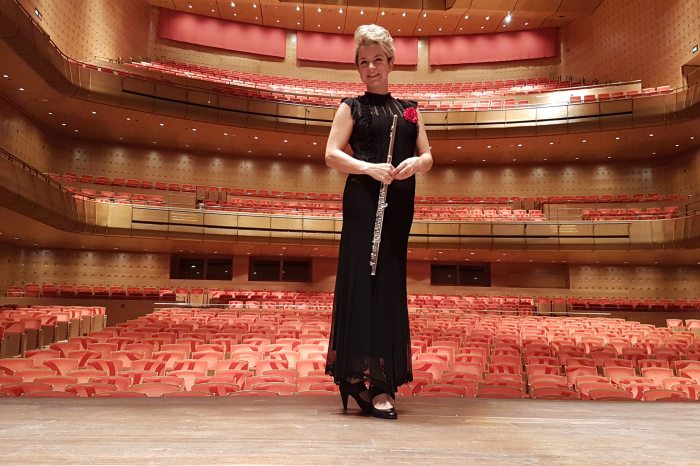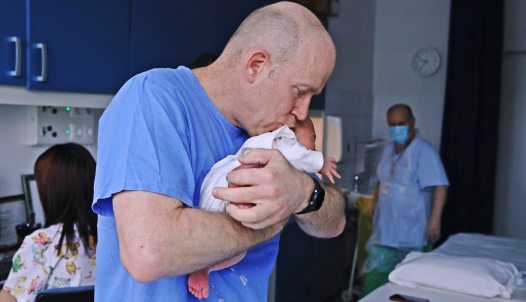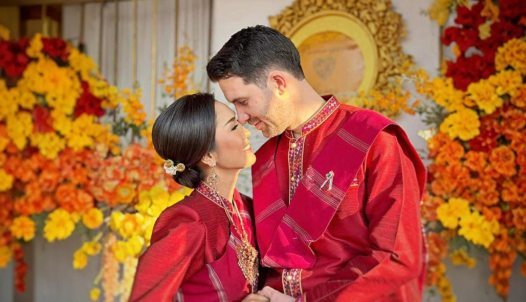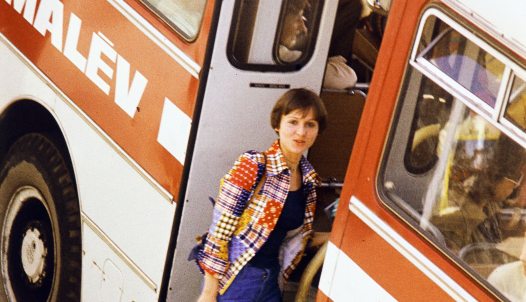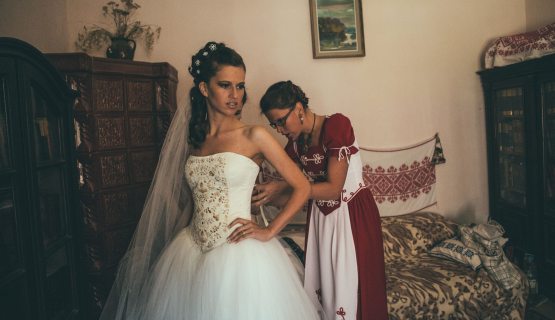“My father chose the flute for me” – after Switzerland, the eye of the world is also on the Hungarian artist
Born into a family with an artistic background in Veszprém, she started playing music at the age of nine and was touring with her teacher at the age of ten. The Liszt Academy awarded her the Fellowship granted by the Republic for her outstanding academic achievements, this is also where she graduated with honours, then in Zurich she took diplomas as a teacher of the flute and flautist, similarly summa cum laude. Today she is an internationally acknowledged soloist, a member of top Swiss orchestras, a solo flautist with the Mannheim Philharmonic Orchestra, and an associate professor of the Zürich University of the Arts to mention just a few of her titles. We chatted with Blanka Kerekes about her dream career.

It has been a busy 25 years if we reckon from your first flute lesson…
“Busy, but I hope this is just the beginning! I believe that great things await me in the future. Even getting into the Liszt Academy appears unbelievable, not to mention testing myself abroad and standing my ground on the world’s stages as a Hungarian. I won a one-year Erasmus study scholarship to Zürich University of the Arts in 2008, ushering in an extraordinarily fruitful period. I had a most excellent teacher in Prof. Dr. Matthias Ziegler, founder of modern flute playing. Through him I could intensify my knowledge of the modern flute technique, something that I later wrote my thesis on. As the central argument, I proposed that modern and innovative techniques that only featured in the curriculum of high school students could actually be mastered at an earlier, primary school age. This brought about a revolutionary change and today my thesis is taught in the syllabus of music schools in Switzerland. I planned to spend one year abroad but this change meant that the Swiss university offered to take me on from the Liszt Academy in Hungary without needing to sit the entrance exam.
“I felt that if Switzerland called me for the second time, then I should be there.”
You only took advantage of the opportunity after you had graduated here at home. Why?
“Because I am proud and grateful for everything that, as a Hungarian, I received from my homeland and my teachers, thus it was only natural that I should first complete my studies in Budapest, and only after this take advantage of the generous Swiss invitation. In Switzerland I finished my classical music studies and graduated from the jazz department. It meant a great deal to me that I had the possibility – even during my studies – of playing with the Tonhalle-Orchester of Zurich, I recorded a CD jointly with the Winterthur Symphony Orchestra, I was able to perform under the baton of Hans Zender, and I had the chance to work with artists of the Opera House. I was taken on as a teacher at the Rorbas Music Teaching Centre and I won the Winterthur Symphony Orchestra’s flute rehearsal competition. I became a member of a circle of artists in which I moved freely and to which I remain loyal to this day.
“In Switzerland, there is a long tradition of patronage, it is a matter of great pride when a patron embraces an artist. I nurture friendships with several famous families.
“I have much to thank my patrons for, both professionally and personally speaking: my instruments, countless home concerts and heart-warming invitations. For instance, when due to concert scheduling I was unable to travel home to my family for the holidays, the Esterházy family invited me to spend Christmas with them. Today, I consider the niece of the wife of Prince Pál Eszterházy as my honorary mother and I also enjoy the support of the famous Jacobs family.”
How should one envisage the home concerts that you mentioned?
“Well-to-do, culture-loving families pay visits to concerts, theatres, opera houses and concert halls. Alongside concerts played to full houses, home concerts enjoy great popularity in Switzerland. These are staged in the residences of wealthy patrons who are connoisseurs of classical music. The home concerts are private and invitations go out to friends and relatives of the host.”
Am I correct in assuming that only those make it to this elevated position in their profession who are not only believed in by others, but who believe in themselves as well?
“Unfortunately I do not belong to that circle of artists awash in self-confidence, although I am a perfectionist. I always strive for perfection which means that I make even the experience of my successes difficult. But perhaps I have this to thank for the fact that I have set myself serious goals packed with challenges. I always considered it important not only to take to the stage as soloist but also to be able to pass on to my students some of the knowledge I have accumulated, and parallel with this assist them in their careers. I am a jury member of the prestigious Zurich Music Competition and the committee chair of the annual flute examinations held by music schools in Zurich. In addition, I am a member of the committee awarding the Aargau Kuratorium Prize for Culture in the classical music and jazz sections.”
Were you a perfectionist as a child?
“Yes, this is a family trait. My parents always taught me not to be satisfied. I wasn’t an easy case, I was interested in numerous areas of life. I played athletics, handball, I went to music school, I attended language classes, I was interested in so many things that the traditional music school method engaged my attention only with the greatest difficulty. I was lucky that right at the beginning I started to learn music under Szabolcs Kövi, who was my free-spirited, creative, youthfully dynamic teacher. Besides teaching me the basics very well, we did a lot of improvization and we composed music. I can thank him for my love of the instrument. We released a joint CD when I was just 11 years old and we gave concerts in venues including the Budapest Merlin Theatre and the University of Horticulture. Even then I had the chance to sample the beautiful world of music, which inspires and motivates me to this day.”
How did popularity affect you at such an early age?
“It was easy because I enjoyed it. I looked on it as a game, it was just great fun.”
Didn’t it involve giving up a lot? Or is this the only way that talent can blossom?
“Not so much.
“I can now say that on the basis of my teaching experience, talent is very rare and it is similar to a beautiful flower. It is exceptional, but if it is not watered, if it is not tended, then it wilts.”
From whom did you inherit your artistic streak and how did the choice of the flute in particular come about?
“My mother is a fashion designer, stylist and fine art teacher. She designs my stage costumes and she has won special prizes at fashion Olympics on several occasions. My grandparents are also of an artistic temperament. My father sang in the choir of the Opera House, he played the violin and the viola, he is a polymath and as regards his profession, he is a doctor. He chose the flute for me. He instinctively felt which instrument would best suit me, the one through which I could express myself.”
Leaving such a cohesive family, was it difficult to get used to the somewhat austere mentality of the Swiss?
“Yes, it was difficult. The Swiss are reserved and receptive only with difficulty. I grew up in a warm, loving, embracing family. In Hungary, the professional acknowledgments were given by a grateful audience wishing to express their emotions. On the contrary, in Switzerland the audience is rather standoffish and reserved. By now I have worked out what words and attributes they employ to express their recognition.”
However, have you been able to find pure happiness in your successes?
“That is a very good question, this is a great problem for me. After a performance I constantly turn over all the events in my mind and there is always something I would do differently.”
What was it like to test yourself in other genres, for example, alongside Ádám Török?
“It was a fantastic experience to play music with the king of the blues, I had so many totally unforgettable moments. At home with my parents we listened to many recordings from Ádám Török through Aretha Franklin and Miles Davis to The Doors. I grew up listening to the greats of many different genres. It was painful that here at home I did not have the opportunity to try out some of these trends. At that time, single-subject majors only were accepted, so somebody became either a classical or a jazz musician, there was no real crossover between the genres.
“I was given the opportunity in Switzerland and I chose jazz as a complementary course to go alongside classical music subjects. At my diploma concert I stood in front of the board with a combination of classical and jazz, which even there was not that common.”
You mentioned how proud you are of being Hungarian. In 2020, you represented the country at the World Economic Forum online concert video, in which a famous musician from every EU state was selected for a recital of Beethoven’s Ode to Joy. Do you feel this is important for Hungarians as well?
My connection with my homeland is close, it is important for me to return home regularly. I can consider myself lucky in that Hungary not only calls me as a private individual but it also puts forward distinguished invitations in my professional capacity. In Veszprém, I am a member of the jury for the Festival of Dance – National and International Contemporary Art Meeting, we have given several joint concerts with the Mendelssohn Chamber Orchestra. My hometown has won the title European Capital of Culture for 2023. I am excited to be putting together a programme for my stage appearance for this event, plus we are planning new combined concerts with Roby Lakatos.”
What else are you very proud of, or what is important for you, but we have not yet touched on?
“In the professional sphere it was with enormous pride that in 2019 I received an invitation to an international festival in Yerevan, Armenia, where in a solo concert I had the chance to introduce myself in the company of first instrumentalists from the world’s greatest orchestras. I am also happy to be able to give regular concerts to patients in clinics, following in the footsteps of my father in the spirit of healing. I have made appearances at several charity concerts, and from the money raised a start has been made on building schools, purchasing educational equipment and creating possibilities for families living in disadvantaged countries. I feel it is important to mention that I began my studies in a sports elementary school and a love of sports has remained in my blood all my life. I am a tennis, skiing and spinning trainer at the Zurich Sport Academy. I am convinced that sport is essential for musicians in order to maintain stamina and physical strength. I encourage all my students to pursue sports.”
